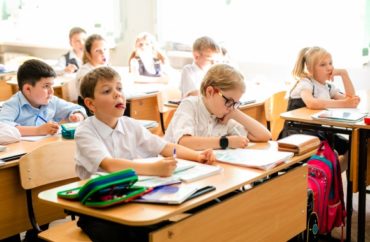
Many already knew this, but now it’s official: The COVID-19 pandemic has been a worldwide disaster for kids’ learning.
According to The Economist, while it was reasonable in COVID’s early days to take precautions in schools (as no one yet knew the full extent of the danger) “disruptions to education lasted long after encouraging answers to these questions emerged.”
Indeed, schools in poorer countries stayed closed to in-person far longer than those in wealthier regions. For example, while schools in Europe were closed for approximately seven months, Latin American and South Asian schools were shuttered for an average of 63 and 73 weeks respectively.
As a result, the percentage of children in low and middle-income countries who “could not read a simple story” has risen between 13 and 23 percent, depending on the region.
Quite interestingly, where teachers unions are “especially powerful” like in parts of the U.S. and Mexico, schools stayed shut for longer periods of time. “Unions have fought hard to keep schools closed long after it was clear that this would harm children,” according to the report. (See here, here and here.) In the U.S, a “full year separated the districts that were first and last to restart properly.”
A paper published in May by analysts at the World Bank, Harvard and the Brookings Institution looks at 35 studies of learning loss from 20 mostly rich countries. It finds that the average loss across these studies was equivalent to what would usually be learned in one-third to one-half of a year of normal schooling.
In England test scores at the start of the 2021-22 school year suggest that primary-school kids were almost two months behind where they should be in maths, and one month in reading. Similar research in America found that children were on average between 8-19 weeks behind.
In some countries the results were truly dire. In South Africa primary schoolchildren tested after a 22-week closure were found to have learned only about one-quarter of what they should have. Brazilian secondary-school pupils who had missed almost six months of face-to-face school did similarly dreadfully. A study of 3,000 children in Mexico who had missed 48 weeks of in-person schooling suggests they appeared to have learned little or nothing during that time.
The solution isn’t just getting kids back into school buildings, it’s teachers ditching the “dense curriculums packed with inessential stuff” and concentrating virtually exclusively on the three Rs.
IMAGE: Lena Ray / Shutterstock.com
Like The College Fix on Facebook / Follow us on Twitter




Add to the Discussion